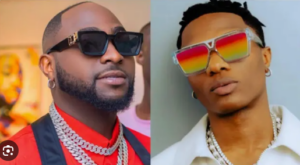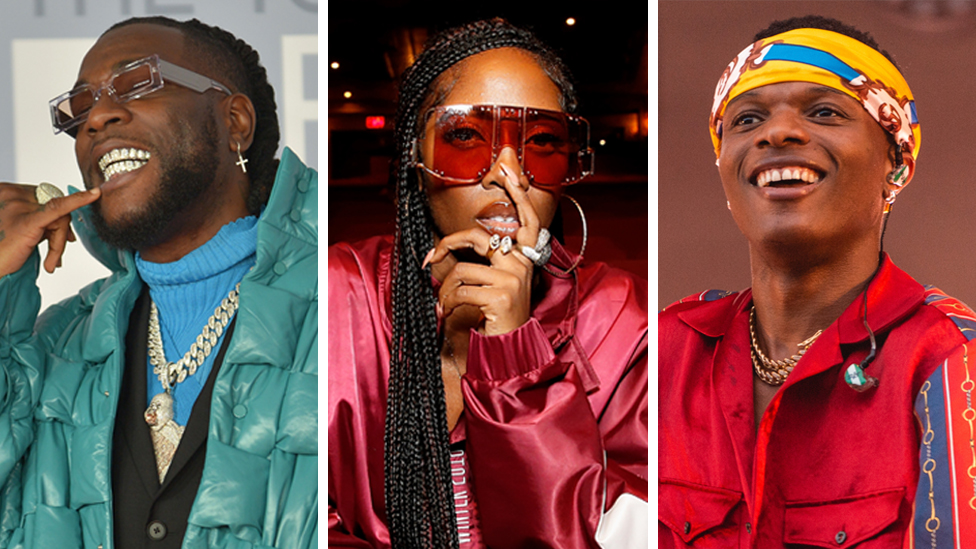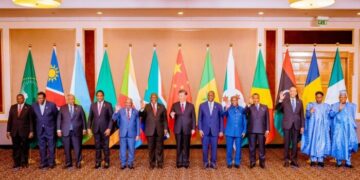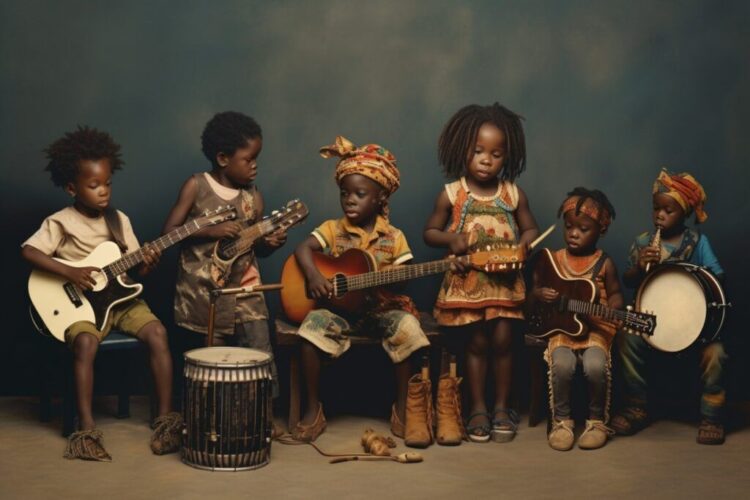Many people often confuse Afrobeat and Afrobeats, not realizing these two genres are predominantly distinct in both sound and origin. While they share cultural roots and influences from African musical traditions, their development and impact diverge significantly.
The aim of this article is to examine the historical and musical evolution of these genres through the interview lens of journalist Ivie Ani, clarifying the elements that set them apart.
Historical Origins and Evolution of Afrobeat
Afrobeat is rooted in West African musical traditions and emerged from Ghana and Nigeria as early as the 1920s, with its widely recognized form taking shape in the 1960s. The genre was popularized by Nigerian icon Fela Kuti, a musician, multi-instrumentalist, and human rights activist, who is often hailed as the father of Afrobeat.
Kuti combined African harmonic and rhythmic concepts with jazz, funk, and American musical influences he encountered during his time in the U.S., leading to the distinct Afrobeat sound characterized by extended instrumental sections, polyrhythmic layers, and social-political lyrics.
The genre is often seen as embodying themes of resistance and activism, with influences from Highlife, a Ghanaian genre known for its jazzy horns and multiple guitars, and Fuji, a Nigerian genre with roots in Islamic wake-up call music during Ramadan.
The Rise of Afrobeats
In recent decades, Afrobeat evolved into what is now called “Afrobeats”—a broader category encompassing various modern African music styles and Western influences, such as hip hop, dancehall, R&B, and electronic music.
Afrobeats gained momentum in the 2000s and has dominated African pop culture for the past decade, resonating with audiences across continents. Key to its global appeal is the amalgamation of Afrobeat’s foundational rhythms with diverse genres, creating a fresh sound that has found popularity among younger generations and Western audiences alike.

According to journalist Ivie Ani, confusion over the terminology “Afrobeats” extends even within the African community, with some seeing it as a UK-coined term that stuck due to the genre’s global appeal. Ani emphasizes the need to view Afrobeat as the genre that laid the groundwork for Afrobeats, which draws from a broader palette of influences, incorporating traditional African genres and adding Western pop elements for a more commercial appeal.
Linguistic nuances and cultural perception
Ani also addresses linguistic elements that can blur distinctions between the two terms, especially when spoken by people with West African accents. She explains that “when people with West African accents say ‘Afrobeats,’ they sometimes drop the ‘s’ due to accent and tone,” inadvertently referring to the older genre, Afrobeat. This can lead to misunderstandings as speakers may interchange the terms, further complicating recognition of each genre’s unique identity.
Influential Figures in Afrobeats
Nigerian musician 2Baba, known for his pivotal role in the Afrobeats movement, reflects on the legacy of Afrobeat and the bridge it created for new African sounds. He highlights how Fela Kuti’s influence permeated the music of his generation, marking Kuti as a central figure who inspired young African artists through his revolutionary sound and presence.
2Baba’s 2004 hit single “African Queen” represents one of the earliest modern Afrobeats songs to gain international acclaim, setting the stage for more West African artists to break into global music markets. Pioneers like P-Square, D’banj, Wizkid, Davido, Tiwa Savage, Burna Boy, Sarkodie, Rema, Asake, etc have since expanded Afrobeats’ reach, achieving international chart success and collaborations with Western stars such as Beyoncé, Drake, Justin Bieber, and Ed Sheeran.
Tiwa Savage, often regarded as the “Queen of Afrobeats,” has been instrumental in merging traditional Nigerian music with global pop sensibilities. Drawing from influences like Afrobeat, Highlife, and Yoruba sounds, her music speaks to a generation that grew up with these genres as a cultural backdrop. Her collaborations with international artists, notably Brandy on “Somebody’s Son,” and her 2018 MTV Europe Music Award for Best African Act, signify Afrobeats’ rising prominence in global music arenas.

Similarly, Ghanaian artist Shatta Wale’s dancehall-influenced Afrobeats style earned him acclaim with his No. 1 position on iTunes’ Top 100 Reggae Albums chart in 2019 and his feature on Beyoncé’s “Already.” His achievement highlights how Afrobeats has expanded its footprint beyond Africa, merging with genres like reggae and dancehall to find resonance with diverse audiences worldwide.
Recognition on Global Platforms and Awards
The genre’s increasing international popularity is evidenced by the Grammy Awards’ recent addition of Best African Music Performance, a category recognizing recordings that incorporate African rhythmic traditions from Afrobeat to Afrobeats and other regional styles. The category’s description specifies an intention to celebrate African sounds broadly, spanning genres such as Kizomba, Amapiano, Chimurenga, and more.
As Tiwa Savage notes, this global embrace of Afrobeats reflects a growing respect for African music’s diversity. Shatta Wale echoes this sentiment, stating that recognition of Afrobeats in international awards enriches the music landscape and elevates African artists on the world stage.
Afrobeats continues to evolve and expand its global reach. Collaborations with major Western artists and increased media presence have amplified its influence, making it not only a reflection of Africa’s vibrant cultural scene but also a genre that drives global music trends. As Afrobeats progresses, artists are bridging traditional African music with contemporary sounds, paving the way for future African music styles to emerge with distinct identities.
Afrobeat and Afrobeats, while often confused, represent two culturally rich genres with unique identities. Afrobeat, with its socio-political roots and jazz-inspired instrumentals, laid a foundation for Afrobeats’ emergence as a genre with cross-continental appeal.






































Discussion about this post